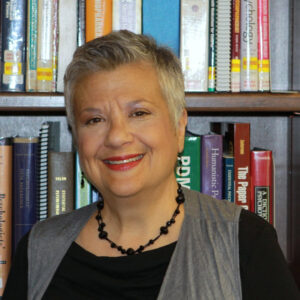The career of a psychologist unfolds through many phases. How does the experience, including both the joys and the challenges of being a psychologist, change over time? Borrowing Jeffrey Kottler’s (2012) depiction of the stages in the career of a psychologist, we asked MSP faculty to offer their perspectives. Fran Brown, PsyD, Program Director (MA & PsyD) offers insight into Stage Six.
Stage Six – Midcareer Doubt: “What if I’m not really doing anything?”
 This year I officially move from categorization as an early year psychologist to midcareer status. In some ways that seems incongruent after practicing for a full 10 years. But that’s what we do: practice. There is always much to learn, many clients to help, and much suffering in the world. As the old saying goes, just about the time I think I’ve heard it all, something new comes my way and I am humbled by all that is still unknown to me.
This year I officially move from categorization as an early year psychologist to midcareer status. In some ways that seems incongruent after practicing for a full 10 years. But that’s what we do: practice. There is always much to learn, many clients to help, and much suffering in the world. As the old saying goes, just about the time I think I’ve heard it all, something new comes my way and I am humbled by all that is still unknown to me.
In my clinical career I’ve traveled the stages of transformation that you’re currently learning about. As I look at the research on the Midcareer Doubt Stage, I seem to be right on target. I’m past, “I get to do what I love and get paid for it” and have moved to “What if I’m not really doing anything?” This is a question I have asked myself more than once. After many years of doing psychotherapy, I now have enough experience to know that sometimes therapy is not successful for a variety of factors – of which I am only one. Yet in those times I am filled with self-doubt. It’s that one client that is not progressing, the one whose resistance that cannot be overcome, that sticks with me at the end of the day. It’s a struggle not to go to that place in a global way, “What if I’m not really doing anything, WITH ANYBODY?” The clients keep coming, their problems can seem insurmountable. Who am I to think that our work will make any difference at all?
At those times I make a conscious effort to remind myself of all of the clients who do make progress, who have gained much from their therapy and are leading happier and more productive lives. My professional journey continues, and with it the realization of what I learned here, at MSP: My work is to facilitate, not cure. And the relationship DOES make a difference, one client at a time.
Kottler, J.A. (2012). The therapist’s workbook: Self-assessment, self-care, and self-improvement exercises for mental health professionals (second ed., pp. 10-16). Hoboken, NJ: John Wiley & Sons, Inc.